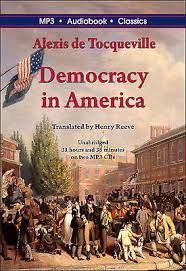Applying Management (MLA) Lessons to Education
PUBLISHED:
It could be argued that the field of Education has little if any relation to the world of Business. With work experience in both fields, I would reject that notion. 24 years as a sole proprietor and 25 years in teaching K-12 public education have shown me that the elements of Education easily apply to successful business practice. After all, teachers are instructing the young on how to navigate through issues to become successful adults. Through similar techniques, management can foster employee growth. Some of the necessary skills in Education are described as self-awareness, social awareness, and the practice of good decision making. These three skills are prominent in both Business and Education.
So, are the elements of the core competencies developed by the Commission for Academic, Social, and Emotional Learning (CASEL) synonymous with the principles of Drucker’s Management as a Liberal Art? First, CASEL’s core competencies include self-management and self-awareness, social awareness, relationship skills, and responsible decision-making (CASEL, 2022). This well-known educational organization brings forward the need to teach the whole child from social-emotional learning to academics. Teachers guide students to discover which of these competencies they excel at and which need further development, then facilitate growth in self-management and sound decision making. Let me take a moment to explain CASEL. This non-profit organization was established to promote Social-Emotional Learning (SEL), a term created in 1994. The purpose is to support learning for the whole child; emotional intelligence to academic intelligence, from preschool to Twelfth Grade.
These competencies share great similarities with the principles of Drucker outlined in Drucker’s Lost Art of Management: Peter Drucker’s Timeless Vision for Building Effective Organizations (Maciariello & Linkletter, 2011). Drucker was a management consultant, educator, and writer. In chapter 5, the authors explain that Drucker’s philosophy is that management is a liberal art. This is due to the fact that it entails the management of people who have “human behavior, creativity, emotions, decision making opportunities, and moral values” (Maciariello & Linkletter, 2011, p.181). This list is similar to and influenced by the awareness, relationship, and decision-making skills emphasized by CASEL.
According to Reed, et al. (2010), social learning is the experience of learning from one another in ways that benefit the “social-ecological systems” in the context of a social setting. The term social ecology as used by Drucker means “the systematic evaluation of factors” such as “changes in environment . . . [and] trends . . ., new technologies, and other external or internal sources of opportunity” (Maciariello & Linkletter, 2011, p.16). Therefore, social learning shapes our social ecology which involves awareness of not just sources of opportunity but also those around us. Learning must be evident, go beyond the perspective of self into a worldview, and be a continuation of a “social network” (Reed, et al, 2010). These key concepts are taught in Education through social-emotional learning as demonstrated by CASEL. We need to explore ideas in groups to take in new useful information (learn) and increase our social skills (self-awareness, social-awareness, and decision-making). In this sense, social-emotional learning, like social ecology, involves considering factors/people outside of our own organizations or personal experiences/viewpoints.
We are intentionally fostering growth and supporting the success of individuals in both arenas. To do so in Business, we highlight individual, organizational and societal purpose, which fits CASEL’s social awareness and self-awareness as found in Education. The “moral science” of managing individual employees of an organization as explained by Drucker (1992) focuses efforts on employee assets and development. Drucker (1992) uses the term moral science to demonstrate that it is not a true science at all but a balance of belief. For example, how can someone truly define what “life, liberty, and the pursuit of happiness” means to each citizen of our nation? One person’s belief may be in “natural creation” while another’s may be in “spiritual creation” (Drucker, 1992). Each person must find their own purpose in life as an individual and be a productive member of organizations and society. This is similar to teaching the whole child; focusing on social skills and academics. Life experiences, whether in the classroom or in the workplace, shape perspective and lead to identifying one’s status and creating one’s function in society. Just as the classroom shapes the student in preparation for life, the well-managed organization provides opportunity for individual growth and development that is aligned with organizational mission and vision. Both educators and managers need to provide room for individual status, but also function within society.
It is the perspective of this entrepreneur, educator, and psychologist that competencies can also be taught in Business just as they are in the classroom. Drucker believed that management ability was acquired through learning rather than a set of innate qualities. The focus of Business can be on teaching, through an intentional organization citizenship behavior model, the desired foundation. Intentional planning and creation of a reflective environment are key in both fields to foster development of general and specific skills. Core competencies focused on innovation, and social awareness can be fostered by a proactive citizenship behavior environment. Organization management needs to purposefully teach and facilitate the desired behavioral outcomes. Every manager can be a teacher.
References
- CASEL.org (2022), Fundamentals of SEL (Social-Emotional Learning). https://casel.org/fundamentals-of-sel/
- CASEL.org (2022), Interactive CASEL Wheel. https://casel.org/fundamentals-of-sel/what-is-thecasel-framework/
- Drucker, P. F. (1992). “Reflections of a social ecologist,” Society, Vol. 29, No. 4, pp. 57-64. Reprinted, with an afterword, in Ecological Vision (1993), Transaction Publishers, New Brunswick, NJ. Pp. 441-457.
- Maciariello & Linkletter, 2011. Drucker’s lost art of management: Peter drucker’s timeless vision for building effective organizations. McGraw-Hill, New York.
- MLARI staff. (2022). Management as a liberal art; Train the trainer course. pp.72-82. An excerpt from Maciariello, J. A. 2009. Marketing and innovation in the Drucker management system. Journal of the Academy of Marketing Science 37, 36.
- Reed, M. S., A. C. Evely, G. Cundill, I. Fazey, J. Glass, A. Laing, J. Newig, B. Parrish, C. Prell, C. Raymond, and L. C. Stringer. (2010). What is social learning? Ecology and Society 15(4): r1. [online] URL: http://www.ecologyandsociety.org/vol15/iss4/resp1





